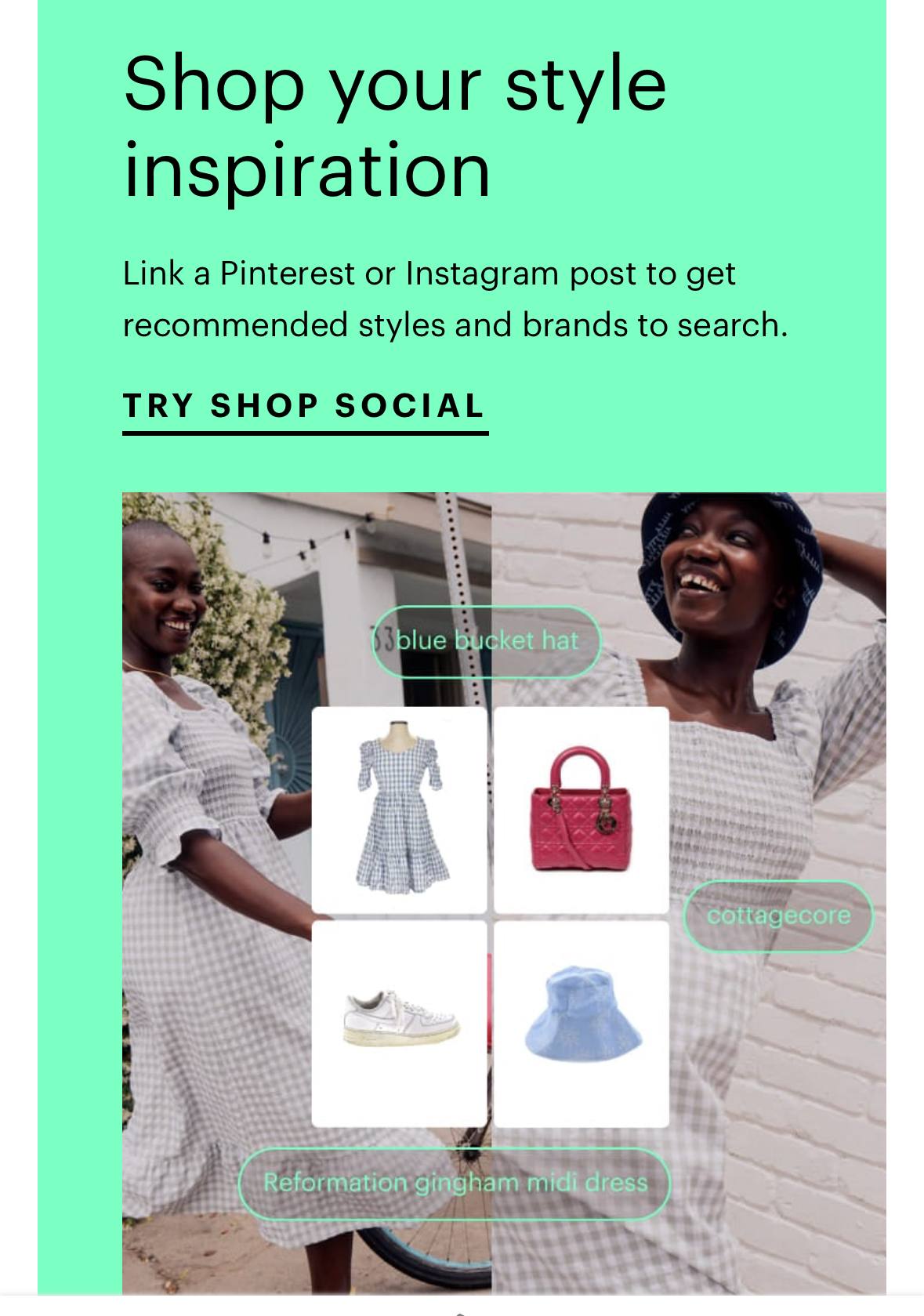Pinterest Is Proving That Human-Centered Innovation Wins—And I’m Here For It
If you want to know what it looks like when a platform listens to its users and dares to evolve with them instead of marketing at them, look no further than Pinterest. While everyone else is busy chasing algorithms, Pinterest is building experiences around actual people—and it’s working.
Pinterest: A Quiet Giant That Keeps Innovating
While the social media world has gotten louder, faster, and more chaotic, Pinterest has been quietly refining the most human-driven platform on the internet. Unlike other channels where the algorithm decides what you see based on engagement bait, Pinterest has always focused on one thing: helping users dream, plan, and take action based on their real-life interests.
And now, they’re doing it even better.
As a longtime ThredUp shopper and tech enthusiast, let me tell you—Pinterest just changed the game again.
Let’s rewind a bit. I’ve been using ThredUp for over five years. It’s my go-to for high-quality, gently-used clothing at a price point that keeps my wardrobe fresh and affordable. At least 90% of what I wear has come from this app. But while I adore ThredUp, the one thing that’s always been missing is the ability to easily find full outfits—without spending hours scrolling and second-guessing fit.
Yes, their return policy is generous (and even lets you keep clothes at a discount, which I love because I often donate the pieces to our local Goodwill). But what I’ve really been craving is something smarter. Something that saves time and actually helps me feel good in what I choose.

Enter Pinterest’s Beta ‘Try Shop Social’ Feature.
As an early adopter of anything tech-forward, I jumped into this the second I spotted it.
Here’s how it works:
I found the perfect outfit on Pinterest.
I copied the pin link.
Pasted it into the ThredUp search bar.
BAM. The app scanned the image using AI and instantly served up outfit pieces inspired by that exact look—neatly organized, easy to browse, and even easier to love.
Suddenly, outfit creation became intuitive.
Effortless.
Fun again.
And then, as if the Pinterest bots were reading my mind—I scrolled LinkedIn and saw a new video campaign from Xanthe Wells, Pinterest’s VP of Global Creative. The ad featured a girl standing in front of the mirror, frustrated that she looks like everyone else. She imagines a Pinterest board built just for her, and like magic, she jumps into a series of unique, personalized looks in different colors, moods, and vibes.
It was me. That ad was me.
Pinterest didn’t just show a new feature. They showed they understand how it feels to want something more personal. More expressive. More human.
This is what modern marketing should look like.
Last week, I wrote a piece about what’s broken in marketing based on a question I had the chance to ask Mark Schaefer in a live AMA. His answer stuck with me:
“The most human company will win.”
And here Pinterest is, boldly stepping into that truth.
While other platforms feel increasingly impersonal, ad-saturated, and creator-fatigued, Pinterest is doubling down on people. They’re not pushing content at us. They’re building tools with us. The difference is massive.
How Pinterest Has Consistently Evolved with Its Users
Let’s talk about how Pinterest has quietly become the blueprint for user-first innovation:
Visual Search Before It Was Cool Pinterest’s Lens feature launched back in 2017, letting users snap a photo of something and search for similar products. It was a baby step toward AI-powered shopping, and now it’s foundational to what visual commerce looks like today.
Idea Pins & Creator Tools While platforms like Instagram began throttling reach to push paid ads, Pinterest gave creators a runway. Idea Pins let users save inspiration, recipes, projects, and tutorials that actually stay evergreen—without disappearing after 24 hours.
Shopping Integrations with Meaning Instead of turning into another marketplace, Pinterest blended commerce with creativity. Users could pin from real brands, build their dream boards, and slowly transition from planning to purchasing on their own terms.
Try On Tools & AR Innovation Pinterest didn’t rush into AR just to check a box. Their virtual try-on for makeup and accessories was thoughtful, user-friendly, and designed to reduce friction before someone hit checkout.
And now, with features like Try Shop Social, they’re completing the loop: dream it, pin it, try it, buy it.
The Magic of Aligning with the Right Platform
I can’t lie—while my X (Twitter) engagement dries up and Instagram feels increasingly soulless, I’m leaning harder into Pinterest. Not just as a user, but as a marketer who deeply believes in what this platform is doing.
They’re not chasing trends. They’re designing tools for humans who want to express themselves and live more intentionally. That’s the kind of marketing I want to build. That’s the kind of company I want to align with.
What Other Brands Can Learn From Pinterest
Listen Actively, Not Just Collect Feedback
Pinterest builds with their users in mind. They don’t just launch for PR—they launch to solve.Make It About the Customer, Not the Click
Every new feature feels like it’s made to reduce friction and increase joy. That’s a rare combo in today’s digital world.Invest in Thoughtful Tech, Not Just Flashy Trends
Pinterest doesn’t move fast and break things. They move meaningfully and make things better.Tell Stories That Reflect Real Feelings
That Xanthe Wells ad? It wasn’t just creative. It was a mirror. And sometimes that’s all people really want—to be seen.
My Final Thoughts On The Topic
Pinterest is proving that when you put people first, build tech that serves real needs, and communicate with heart, marketing doesn’t just work—it resonates.
I’m here for it. All of it.
Because in a world drowning in sameness, Pinterest is reminding us how to stand out by helping us all be more ourselves.
Here’s to a new era of marketing. One where the most human company actually wins.